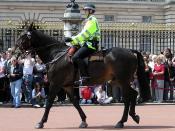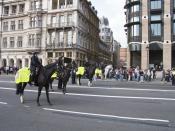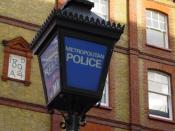PACE, the Police, and the British Public
What is PACE?
PACE or Police and Criminal Evidence Act 1984 is what provides the police with the powers to "stop and search" individuals. But, then why does this area of the Act lead to so much public mistrust of the police?
The public are worried that the increasing power of the police to stop and search are an infringement of civil liberties. Of particular concern is recent legislation (e.g., the Terrorism Act (2000)) that allows a search to be lawful when the constable has no grounds to be suspicious of the person searched. An opposing view is that such powers are necessary to uphold the rule in a society that has become increasingly aggressive.
Generally, any police constable may require a person or vehicle to stop and be searched, if the officer has reasonable grounds for believing that the person has possession of certain illegal items, or the proceeds of crime.
In designated areas where, for example, there is a high risk of violence or public disorder, or for the prevention of terrorism, any person or vehicle may be stopped, without such justification. Approval for such actions must have been in advance. There are also powers to set up 'road checks' to search for offenders and escaped prisoners (which requires advance approval), and to prevent breaches of the peace (which does not).
Main Provisions of the Act
The 1984 Police and Criminal Evidence Act was particularly motivated by the desire to "head off" the demands for and improvement in the mechanisms of police accountability , by introducing reforms which were designed to enhance the extent to which the police operated with the consent of the general public. However, its now disputed use has arguably caused more conflict than any other policing strategy.


